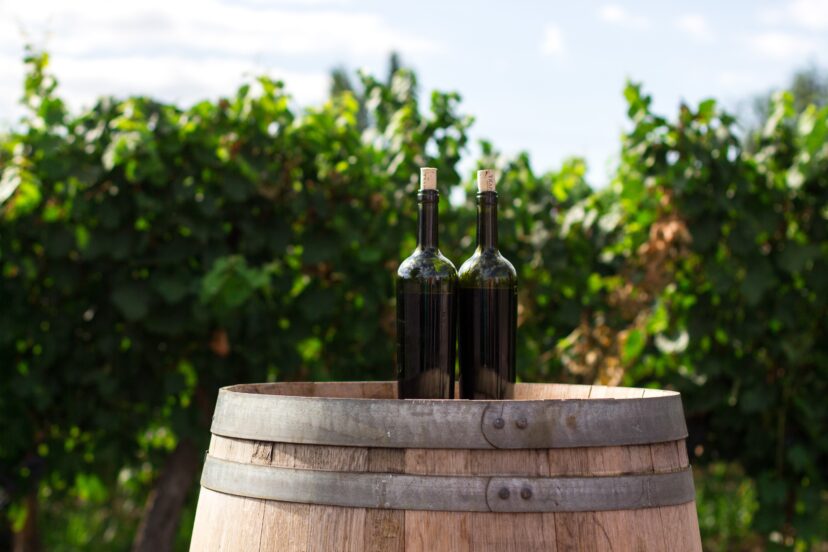WINE INVESTING: Everything You Need to Know in 2024
As a passionate advisor in the space of money and investing, I am constantly on the lookout for unique opportunities that extend beyond traditional avenues. One such intriguing investment option gaining momentum is wine investing. In this article, I will guide you through different aspects of wine investing, offering insights, suggestions, and reasons to consider this flavorful venture.
Introduction
Wine investing, once considered a niche market, has evolved into a compelling option for investors seeking diversification and potential long-term gains. With the rise of alternative investments, you might wonder whether wine investing is a worthwhile pursuit. Its ability to allow investors to diversify their portfolios from traditional assets, such as stocks and bonds, has caught the attention of those seeking to add a touch of sophistication to their investment portfolios.
Understanding Wine as an Investment
Delving into the historical performance of wine investments reveals a fascinating journey of appreciation and resilience. Unlike traditional assets, wine prices are influenced by factors such as the economy, interest rates, and corporate earnings, creating a market that thrives on the delicate balance between supply and demand. Therefore, understanding the quality of the wine, including its limited availability, creates an exciting opportunity for investors.
Previously, I would easily recommend the Bordeaux and Burgundy regions of France as the best investment wine came from. But things changed as other countries have emerged as noteworthy producers of high-end wines, including South Africa as one of the big exporters of wine not forgetting the U.S., Australia, and Italy.
Benefits of Wine Investing
The allure of wine investing extends beyond the potential for financial gains. Diversifying your investment portfolio with fine wines can provide a unique hedge against market fluctuations, offering stability and a touch of luxury.
Some people believe that investing in wine is only suitable for those with high net worth. However, the secret is that if you invest in wine with a long-term perspective, it can be one of the best decisions you make.
Six exciting benefits of Wine Investing:
- Resistant to inflation
- Resistant to Recession
- Low volatility
- Direct Ownership
- Tax Advantage
- Diversified portfolio
Risks Associated with Wine Investing
While the rewards can be intoxicating, it is crucial to acknowledge the risks that come with wine investing. Market volatility, uncertainties in valuation, and the challenges of storing and maintaining wine collections demand careful consideration. The value of wine depends on factors such as consumer trends, weather patterns, and vintage and harvest yields, all of which affect the demand and supply of wines, potentially impacting profit margins.
Types of Wine Investments
Investors can choose between fine wines and bulk wines, each with its own set of considerations. Additionally, exploring wine funds or portfolios managed by experts allows for a more hands-off approach to wine investment.
Selecting the Right Wines for Investment
Choosing the right wines is an art that involves assessing factors such as producer reputation, vintage quality, and market demand. Exploring emerging regions and grape varieties adds a dynamic element to your investment strategy.
Wine Storage Solutions
Proper storage is paramount to maintaining the value of your wine investments whether opting for a personal cellar or utilizing professional storage facilities, ensuring ideal conditions is crucial for long-term success.
Market Trends and Emerging Opportunities
Stay attuned to current trends in the wine investment market, including the influence of technology and changing consumer preferences. Exploring new opportunities, such as investing in sustainable and rare wines, can open doors to unique returns.
Tax Implications of Wine Investing
Understanding the tax implications of wine investing is essential for savvy investors. Implementing strategies to minimize tax impact can enhance the overall profitability of your wine portfolio.
Building a Wine Investment Strategy
Crafting a successful wine investment strategy involves setting clear goals and creating a diversified portfolio. Balancing risk and reward and aligning your investments with your financial aims are key to long-term success.
One tip I would like to share is to always research the place where you are buying your wine. This can have a significant impact on the quality and type of wine you own. Purchasing wine in a barrel can be more affordable, but it is crucial to find the best place to buy from before proceeding further.
Selling and Profiting from Wine Investments
Timing plays a crucial role in realizing profits from wine investments. Understanding market demand, liquidity, and the best time to sell ensures that you enjoy the returns of your carefully curated collection. High demand with limited supply may allow the ability to increase prices and make more profit.
Common Myths about Wine Investing
Dispelling common misconceptions surrounding wine investing is essential for making informed decisions. Separating fact from fiction allows investors to navigate the wine market with confidence.
Expert Tips for Successful Wine Investing
Gain insights from experienced wine investors who have mastered navigating this unique market. Learn from their successes and challenges to refine your approach to wine investing, as this would allow you a competitive advantage to maximize the success of your investment. Another trick that may be helpful is knowing where to purchase your wine, as this plays a huge role when it comes to the price you have to pay as an investor. For example, buying wine through a premium commercial auction would mean paying a premium price, which may be an estimate of 15% to 25% more than the normal price.
Challenges Faced by Wine Investors
Acknowledging and addressing shared challenges in the wine investment journey is vital for long-term success. From ever-changing market trends to storage concerns, understanding and mitigating risks ensure a smoother investment experience.
Four top challenges faced:
- Insurance Fees: While having the best collections may mean good profits, this can also mean having premium fees. It is always advisable to insure physical products in case of damage or loss of goods.
- Cost of Storage: Depending on the type of collection one may have invested in; it can add up to the costs paid for storage. It is key to store in a carefully maintained and controlled environment, as wine is delicate.
- Period of Hold: Understanding how long you plan to hold your investment is crucial in the wine market.
- Logistic Costs: Consider the costs associated with transporting and managing your wine collection.
Final Thoughts
In conclusion, wine investing offers a captivating blend of financial potential and connoisseurship. By carefully navigating the market, understanding the nuances of valuation, and embracing the pleasures of wine, investors can enjoy both the journey and the returns. So, if you’re looking for a new investment opportunity, consider investing in wine.
FAQs – Uncorking the Answers
- Is wine investing only for experts?
• Wine investing is open to anyone interested in diversifying their investment portfolio. While having expertise within the field adds depth, it is not a necessity. - What role does storage play in wine investing?
• Proper storage is crucial for keeping the quality and value of wine investments. Investing in professional storage facilities is a wise consideration. - How do market trends impact wine investing?
• Staying informed about market trends helps investors adapt their strategies and figure out emerging opportunities for profitable investments. - Can I start with a small wine investment?
• Yes, starting with a modest investment is possible. It is essential to research and choose wines that align with your budget and investment goals. - Are there tax benefits to wine investing?
• While wine investing may offer tax benefits, consulting with financial experts to perfect your tax strategy is crucial.





Comments are closed.